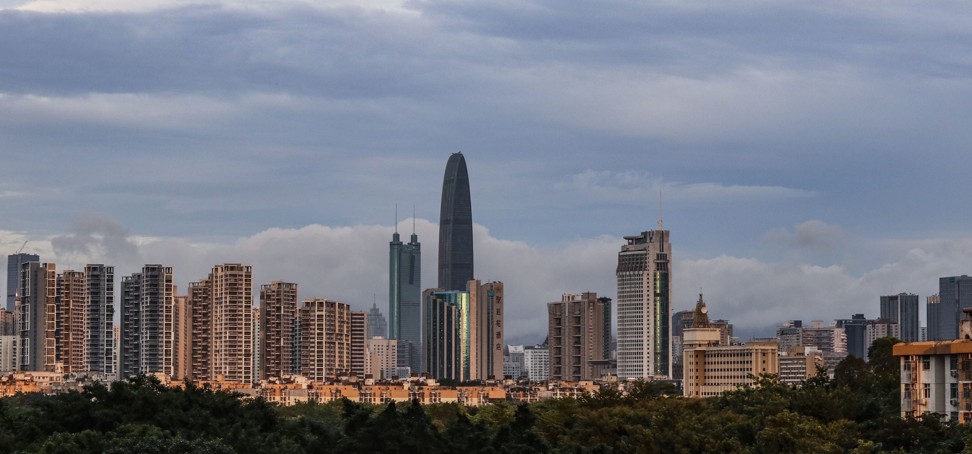
China mulls granting local governments greater autonomy to make their own laws
- The National People’s Congress is considering delegating greater lawmaking power to provincial and even municipal legislatures
- Chinese provinces and cities are demanding greater autonomy as nationwide rules often fail to fit local conditions
China’s national legislature is considering granting greater autonomy to local authorities to decide local rules and regulations, the official Xinhua News Agency reported this week.
It could help the likes of Shanghai and Shenzhen to throw off the shackles of nationwide rules that are sometimes too detached from, or even unfit for, local conditions, legal experts said.
However, they cautioned that any lawmaking power delegated from Beijing to local authorities would be very limited. The country’s Legislation Law, which was amended in 2015, grants lawmaking powers to all cities that are made up of districts, but they are restricted to urban management and environmental and cultural protection. Previously, only provinces, autonomous regions, directly governed municipalities, and “relatively” large cities could make their own laws.
The plan still needs to be approved by the Standing Committee of the National People’s Congress, the country’s legislature that rubber stamps the ruling Communist Party’s decisions into law.
Rules already vary between cities, with Beijing passing a rule banning smoking in all public places, while Shenzhen is stricter than other municipalities as it requires all car drivers and passengers to wear seat belts, and Shanghai was the first Chinese city to require garbage sorting by residents.
But lawmaking powers on property rights, marriage, inheritance, taxation, and criminal penalties are now off limits for local authorities even though many local governments, in the competition for investment and talent inflows, have designed taxation incentives that skirt national restrictions.
Horgos, a remote city in the autonomous territory of Xinjiang on the China’s border of with Kazakhstan, had made itself into “a tax haven in the desert” for movie studios and film companies after the local authority showered tax holidays on such businesses until national and provincial authorities intervened.
While local governments are not allowed to change national tax rates, including personal tax rates that range up to 45 per cent, the likes of Shanghai and Shenzhen have designed local programmes to help reduce the tax burden for qualified professionals. The new free-trade zone in Shanghai has also promised to provide subsidies to selected professionals until their tax burden is reduced to the same level as low-tax locales like Hong Kong, which has a 17 per cent salary tax.
The only reason for their limited legislative powers is because the central government can’t micromanage a vast country with over 2,000 counties
Wang Jianxun, an associate professor at the China University of Political Science and Law, said local legislatures, which answer to local Communist Party committees, would be allowed to make rules for investment project approval procedures, investment promotions as well as other less important issues where local conditions do not have nationwide implications.
“Compared to the high degree of autonomy that local governments have in other countries, local governments in China have little autonomy,” Wang said. “The only reason for their limited legislative powers is because the central government can’t micromanage a vast country with over 2,000 counties.”
According to the statistics from the National People’s Congress, there are over 12,000 local regulations in effect across the country, however, some are no more than a reiteration of existing national regulations.
A report by the Nanfang Daily newspaper last month said that Shenzhen is the most aggressive Chinese city in making its own rules. The city, which is designed as a testing ground for economic and social change, has made 445 local laws covering, among other things, intellectual property, state asset management, bankruptcy and liquidation, labour contracts, and even human organ transfers. Of Shenzhen’s local rules, about one third cover in areas where there are no nationwide standards.

An editorial in the Shenzhen Special Zone Daily, an official newspaper of the Shenzhen government, argued that the greater flexibility the city has been granted to make its own rules “is the greatest support” that Beijing has provided.
Chen Bo, an adviser on the Shenzhen plan who conducts research on free trade zones at the Huazhong University of Science and Technology in Wuhan, said it basically gives the city the green light to “conduct bold trials as long as there is no explicit ban”.
However, it remains to be seen how far a local government can go on issues where Beijing maintains tight control. Chinese cities, including Shanghai, Tianjin, Shenzhen and even Wenzhou, have tried to bore a hole on China’s capital account controls to enjoy more freedom in moving money in and out of the country, but all trials have either been aborted or are proceeding very slowly.

